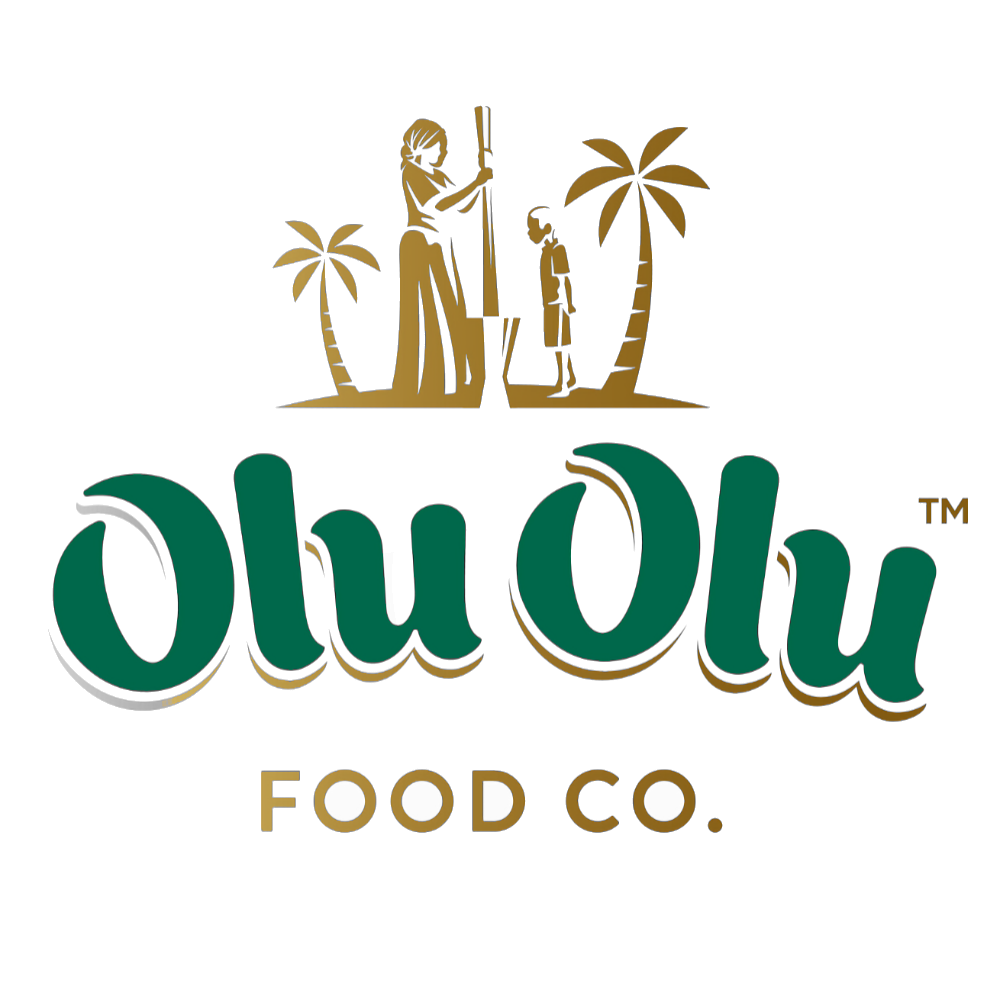Olu Olu Company Timeline
1982
Mr Olu returned to Nigeria from his studies in the USA, where he graduated 2 years prior as a chemical engineer from the University of Cincinnati, and he started a company that focused on water borehole prospecting, called Water Purification Associate Nigeria Ltd
1983
Mr Olu attended his National Youth Service Call (NYSC) at the Federal Institute of Research Oshodi (FIRO), where he came across food processing and research about the commercial bottling of palm wine. This is also where he first began experimenting with how to turn a popular meal called Pounded Yam into an instant flour, and where he met his wife (then girlfriend).
1984
This was when Mr. Olu finished his NYSC and decided, based on his learnings at FIRO, that executing a palm wine project would be easier and cheaper to establish than creating an instant flour for Pounded Yam. He fabricated his own wine pasteurisation machine, ordered bottles, and began bottling palm wine to sell locally across Nigeria. And so it was that Olu Olu Winery Nigeria Limited was born.
1985
The palm wine project garnered traction and high demand, and Mr. Olu’s advisors/mentors requested to invest in the project. However, this later caused issues between the board of directors, due to the project’s unexpected success. By the end of 1985, the directors voted to oust Mr. Olu from his own company, resulting in him looking outside of Nigeria for other markets.
1986
Mr. Olu's visited London to sell his palm wine, but his attempts were hindered by high import duties and taxes from a labelling error, making the product unaffordable for customers. On his wife's advice, he started taxi driving to repay his Nigerian investors. A craving for Nigerian food and no luck finding any in stores led him to resume his research on instant pounded yam flour.
1988
On 5th May 1988, after extensive experimentation in his Barkway Court flat kitchen in Finsbury Park, Mr. Olu perfected his unique instant pounded yam flour formula, comprising potato flour, rice flour, and corn starch. Using £1400 from their savings, he and his wife purchased a small cement mixer and a pedal sealing machine to kickstart their operations.
1989
First export of Poundo Flour to a gentleman named Mr Wilson Alaziga, who was based in Boston, USA, and became the first agent for North & South America. Other distribution requests also began to come from people in Canada and across Europe.
1991
Mr. Olu hired a garage space behind someone’s house on Westbury Avenue, near Woodgreen, to begin his pilot production of instant pounded yam flour. Due to high demand, his wife resigned from her job to join Mr. Olu in their new venture.
1993
Demand for their products continued to grow, so Mr. Olu and his wife rented their first 2,000 sq ft warehouse located in Burwell industrial Estate, Leyton, and hired a third member of staff.
1994
New products were introduced, such as split peeled beans and Ogi Flour. These were ethnic delicacies that usually took several hours to produce, but this appealed to Mr. and Mrs. Olu because it tied into their ethos of re-constituting foods that were labour-intensive into instant cooking flours.
1998
Inspired by the convenience of Heinz Baked Beans, Mr. Olu began canning traditional African meals in a pilot back in Nigeria, yielding first-to-market tinned Egusi Stew, Jollof Rice, Moin Moin, and Yam Porridge; and reinforcing Olu Olu's innovative reputation in the African food sector. However, the UK's 2001 foot-and-mouth outbreak forced a halt, as an import ban on meat, poultry, and fish (especially from Africa) impacted all his products.
2002
Mr. & Mrs. Olu registered Yem Yom Ventures Limited with Companies House in the UK; as their distribution company for their now relatively established Olu Olu brand.
2004
Mr. Olu visited Ghana intending to set up and introduce production facilities for Ogi Flour, Beans Flour, Fufu Flour and Yam Flour. However, this project didn’t take off due to differences within the government department that was supposed to sponsor it.
2010
Mr. Olu began experimenting with 330ml Canned Palm Wine, alongside the long-established 750ml bottles. The cans initially gained global traction, but when the novelty of Palm Wine in cans wore off and consumer preference for larger bottles prevailed, production of the canned variation ceased temporarily.
2021
The collaborative experimentation between the Olu Olu team and a flavor manufacturer culminated in the launch of new Plantain Chips flavours, broadening the product's appeal.
2022
Olu Olu launched its Coconut Range, which now includes drinks, canned milks, flours, sugar, vinegar, molasses, and oils.
2023
Olu Olu introduced its Spice Range, featuring both classic favorites and lesser-known herbs and spices.
